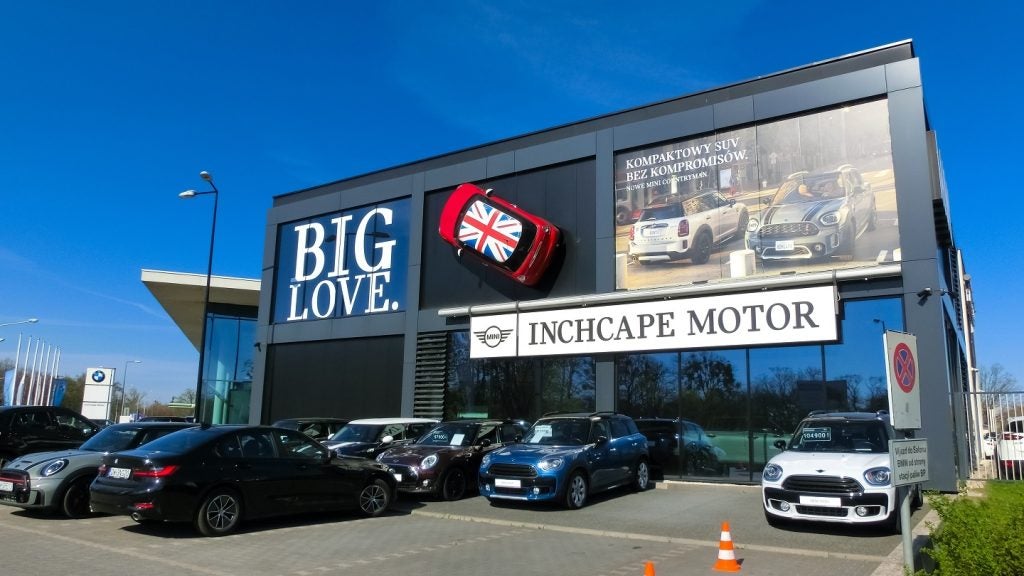
2016 was another good year for the UK motor and fleet business overall, but beyond the ‘normal’ economic cycle, uncertainty emerged following the Brexit decision, writes Alan Henson, head of sales and customer services at KeeResources
The initial concerns and fear of recession following the Brexit vote have receded, but the subsequent EU and US reactions and their own political upheavals – or threat of them – are creating a new operating paradigm that, in turn, is impacting confidence. Questions abound and answers are in short supply!
In car sales volume terms, 2016 finished well. New car registrations grew for a fifth successive year, reaching a new record high of 2.69 million, 2.3% up on 2015, according to the SMMT.
However, it has become increasingly clear that the pressure is on. From early in 2016, the market was being driven by the fleet sector rather than private buyers, with retail sales ending the year down 0.2%.
Lower sterling values are creating inflationary pressure on new cars, and dealer profitability is now coming under pressure. In uncharted political and economic waters, the UK would like a bigger paddle, but has yet to find it!
On a positive note, private buyers have not left the market altogether. Used car sales rose 7.9% in 2016, principally driven by the availability of used car PCP finance, which is now mirroring the success of new car finance.
How well do you really know your competitors?
Access the most comprehensive Company Profiles on the market, powered by GlobalData. Save hours of research. Gain competitive edge.

Thank you!
Your download email will arrive shortly
Not ready to buy yet? Download a free sample
We are confident about the unique quality of our Company Profiles. However, we want you to make the most beneficial decision for your business, so we offer a free sample that you can download by submitting the below form
By GlobalDataThe success of new car finance has been remarkable, with the FLA reporting that 86.8% of private new car registrations were funded by an FLA member. Penetration of the new car market is likely to be close to saturation level.
The growth of the used car market has been vital in supporting residual values, which to date have not experienced the falls that were widely expected as PCP and fleet units came to the end of their three-year cycles in ever-larger numbers. It has also enabled the market to absorb what are widely held to be increases in dealer pre-registration activity.
Looking ahead
The SMMT is forecasting a contraction in new unit registrations of 5% in 2017, and a further 1.3% on 2018. In part, this slowdown respects an economic cycle, but it is evidently the impact and uncertainty of Brexit that is the major factor in play.
Since the June referendum the UK economy has stood up well, despite forecasts to the contrary, but the underlying challenge remains, not helped by wider EU and US political and economic confidence issues. UK GDP growth is expected to fall back to 1.2%, and UK consumer spending growth is forecast to drop by around 2%. All of this is set against a backdrop of rising inflation.
These are all concerns, but ones that need to be seen in context; 2.3% CPI inflation may be above the 2% target, but it is relative to the unprecedented low-inflation, low-interest economy the UK has enjoyed for an extended period.
In a marketplace commonly referred to as ‘dynamic’, inflation and interest rates have largely been static, and a little inflation will be welcomed by many.
So, what will this new year mean for the UK motor industry? Despite the SMMT’s efforts to soften volume expectations, it seems clear that manufacturers will not want to see their sales contract.
Already in 2016, the suggestion of pre-registrations and fleet growth is evidence of this reality. 2017, is set to be a buyer’s market and fleets will be well placed, if there is the demand from them.
In November, the CBI’s growth forecast for 2017 picked up slightly and while the service sector led manufacturing, the potential to increase exports because of lower sterling is clearly possible. Consequently, the fleet outlook should mirror the CBI’s cautious optimism.
One of the key environmental challenges the car and fleet industries will face in 2017 is the introduction of the new Worldwide Harmonized Light Duty Vehicles Test Procedure (WLTP). This is due for implementation in September 2017. The new testing regime is designed to provide a more realistic picture of fuel consumption. It also has implications for CO2 emissions.
In turn, this has the very real potential to impact Benefit in Kind (BIK) taxation. It could force drivers changing their company car after that date to consider downsizing to avoid an increase in BIK tax of up to 35%, as it would also come with an increase in reported CO2 emissions. There is also the potential for additional National Insurance Contributions from employee and employer.
The industry is clearly struggling to come to terms with the new requirements, and as recently as the start of December car manufacturers wrote to the European Commission to ask for more time to implement the rules, claiming the staged rollout planning has become an “impossible task”.
Additional taxation changes stand to impact the car financing or fleet sectors with BIK changes that could impact company cars/cash-for-car schemes due to be announced in April, and a move to take operating leases (contract hire) onto balance sheets from January 2019.
From a purchase perspective, the ‘joker in the pack’ may be increasing OEM involvement in the distribution chain, as seen by the direct-to-consumer model launched by Hyundai, soon to be replicated by Dacia.
The overall uncertainty will mean that all players across the motor industry must remain agile and seek out ways to create more value in the cars and services offered – in short, continuing endeavours to work smarter and with more imagination.
Digitising the business model at all levels will become more important, especially in marketing and efforts to shorten the distribution chain, notably in remarketing.
There can be no question that the year will be challenging. A 5% drop in new car registrations is not what anyone wants, but if there is to be a silver lining, it is that a collapse in residual values, which very arguably would have even deeper implications for the whole industry, is less likely.







